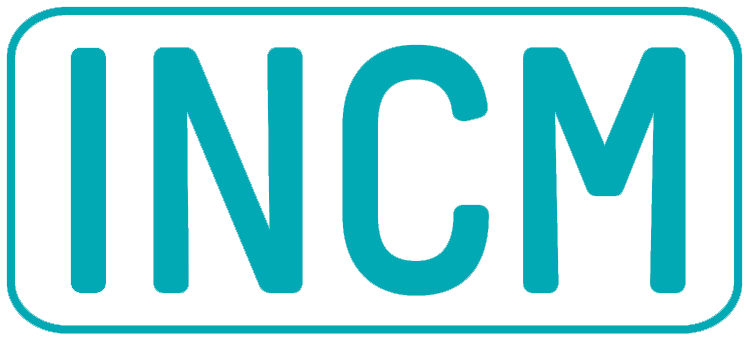 by Linda Weddle
by Linda Weddle
Hmm … what? Well, the famous 19th-century English novelist was a rector’s daughter. Her dad supplemented his income by tutoring young boys, so she probably knew a thing or two about curriculum.
But even if Jane didn’t understand scope and sequence, we do know she was familiar with the curricle. The two-wheeled chariot was big enough for a couple and drawn by a pair of horses. The curricle was most popular during the early 19th century. Many of Jane’s dashing male characters drove such a cart, considered the sports car of its day.
So what’s a curricle have to do with curriculum? The word curricle actually comes from the Latin word curriculum. Curriculum literally means running or race course. That makes sense when applied to Jane’s chariot but takes a little more thought when applied to a pattern of study.
Curriculum originally referred to the events and experiences which made up a child’s life both within a structured learning environment and outside of that environment. John Franklin Bobbitt (1918) was one of the first authors to write a book about curriculum, creatively called The Curriculum. In the book, he expounds on the idea that curriculum is a race course comprised of all facets of a child’s life as he matures into an adult.
We now think of curriculum as an isolated course of study rather than everything a child experiences. To many in ministry, curriculum is simply that packet of info – the teacher’s book, the handouts and the craft supplies – distributed at the beginning of each year of service. The teacher is concerned that all the parts are there (and whether he’ll have time to prepare between soccer coaching, work and getting the garage painted). He’s not considering how the material fits into the curriculum of a child’s life.
Are we on a life course with our curriculum?
I think of the children’s education meeting I recently attended. I listened to several staff members discuss a change in curriculum.
The conversation went something like this …
Teacher 1 – We used Publisher A’s curriculum for our summer program last year and had a lot of success, but I think it takes too much preparation.
Teacher 2 – We could use Publisher B. They have a space theme this year. Kids like planets, rockets and astronauts.
Teacher 3 – We used space for our Sunday morning program just two years ago.
Teacher 2 – Publisher C has great activities and fantastic graphics on take-home papers, but they’re shallow and even infer that the Bible is not the inspired Word of God.
Teacher 3 (skimming through a book) – Look at these cute, edible arks.
The conversation continued for another hour or so, but I don’t have to repeat it. You’ve probably been there and done that. In other words, curriculum choice was based on a plan that didn’t take much effort, had a never-been-done-before theme and lots of recipes for cute snacks.
When planning our next year (or the next five to 10 years) in our children’s ministry, we need to move beyond themes, colors and marshmallow arks. We need to get back to the basics. We must prayerfully choose curriculum which stays on course and involves all areas of a child’s life.
We need to look at curriculum in terms of life context.
Curriculum – a course for a child’s life
Next June, when your class of 6 year olds takes a break for the summer, what biblically centered life knowledge do you want them to have? Is your goal that they’ll be able to make tooth-pick mangers? Or that they’ll know the nine segments of the fruit of the Spirit backwards and forwards (and, in the case of gymnastics-loving Kaylee, standing on her head)?
But let’s go further. Do you want them to know how those nine qualities apply to their lives and to their parents’ lives and to everything they do? Do you want to draw in the parents and have love, joy, peace, etc., also practiced in their home?
You might have this plan in place. More and more churches are developing not only year-long plans, but five- or 10-year plans. The curriculum is solid. Scope and sequences have been written. (Scope – your direction and the goals you have in place to get there. Sequence – the way you want your lessons to fit together to meet those goals.)
Yet many churches do not have such plans. They stumble along year by year, choosing the easiest-to-teach curriculum with an overabundance of fun, non-essential activities. Even state-of-the-art educational tools are worthless if they teach nothing.
Does your church have a life-course outline for the children in your ministry? If not, suggest that your children’s ministry leadership put such a plan in place.
If you cannot convince your children’s pastor that such a plan is important, then start one yourself. Yes, the plan would be more valuable if all teachers and departments worked together. But that doesn’t mean you can’t work on one for the year (or for the two or three years) you plan the lessons for your department. Make sure you have clear goals for the lessons you teach.
Write down what you want to accomplish. Put down five (or 10) central truths that you want your students to know by next summer. Teach those truths. Review those truths. Live those truths.
Prayerfully ask for wisdom in carrying out your church’s children’s ministry goals or in establishing your own goals for your class.
Curriculum – a course for right now, this minute
We need to get serious. Children spend approximately 1,146 hours in school each year and another 2,190 hours in screen time. How much time do we have? If our program is an hour a week – that’s 52 hours, minus the seven hours they miss for sickness or because their family is out of town. If we work in a program that coincides with the school year – those hours are cut down to 30.
Thirty hours is not a lot of time to accomplish our life-course curriculum goals.
Paul wrote in Ephesians 5:16 – Redeeming the time, because the days are evil. The English Standard Version translates “redeeming” as “making the best use of.”
We need to be aware of our long-term plan. But we also need to be intentionally focused during each lesson.
Is the opening activity a time when children play with blocks but also an opportunity for teachers to chat with the children, letting them know they’re interested in their lives? Or is the opening free time for the teachers to stand in the back of the room and discuss last night’s game or the new cupcake recipe?
Is the craft activity a random shape covered with glitter? Or a paper scroll to show what “books” looked like or another piece of furniture for the model tabernacle the class is making?
During the large group lesson, are teachers sitting with their children? Or is this an opportunity for all but the teacher giving the lesson to escape to the church kitchen for some coffee?
The finished lesson is the ultimate goal, but we get there step by step, redeeming the time.
Curriculum – a course for all areas of life
If curriculum is based on a whole-life course, then we want the child’s whole life included. Sometimes we can do that. Sometimes we can’t.
Ideally children’s ministry supports what the child is being taught at home. In another instruction to the Ephesians, Paul writes in Ephesians 6:4 that the father is to bring them up in the training and admonition of the Lord. Moms also greatly influence children. Look at Timothy and the Scripture he learned from his mother and grandmother.
As teachers we need to connect with the parents. That could be by inviting them to observe the class, sending home family study guides or communicating through blogs, Twitter or Facebook.
But let’s be realistic. Yes, a lot of parents are connecting with what we’re teaching. But many have no idea about our curriculum goals even though we’ve emailed, sent home information with their children and invited them to parents’ meetings. Nothing seems to make a difference.
This is all the more reason we need to focus on curriculum for life. We can role-play how children should act in different situations, do object lessons or tell stories to teach kids life application. We also need to teach by the way we live our everyday lives.
We need to draw in the parents to what we’re teaching so their children truly are taught an everyday-life curriculum.
As Catherine (Jane Austen’s heroine of Northanger Abbey) was riding along in dashing Henry Tilney’s curricle, she said it made her “as happy a being as ever existed.”
The goal of curriculum goes further than that. We desire to biblically direct our children in a Christ-centered life course.
Linda Massey Weddle is the senior program specialist at Awana. She has been active in children’s ministry for more than 30 years and is the author of 13 books, the most recent How to Raise a Modern-Day Joseph.





